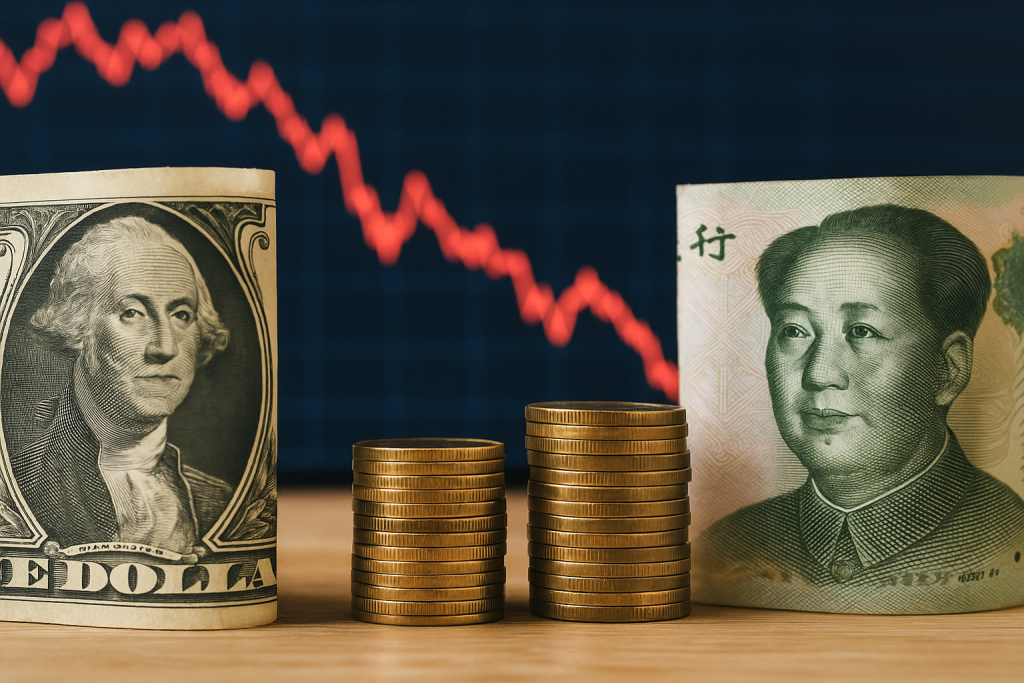The ongoing trade war has increasingly become a hot topic, with significant implications on American citizens’ personal finances. As trade tensions rise, many individuals face uncertainty in everyday expenses. Consumers often find themselves caught in the crosshairs of international disagreements as prices for staple goods shift dramatically. From tariffs on imported products to changes in market pricing, the trade dispute is far from a distant geopolitical issue; it is an immediate financial concern for many.
Economic policies focused on tariffs have led to direct and indirect consequences in the lives of everyday Americans. While complex global economies may seem disconnected from personal bank accounts, the reality is starkly different. With prices for everyday items fluctuating due to imposed tariffs, budgeting becomes increasingly difficult. Individuals no longer view the market dynamics as a distant concept but something that affects their monthly financial plans and purchasing power.
The impact of the trade war on consumer prices

As the trade war intensifies, consumer prices on a variety of goods have been spiraling. Tariffs have led to increased costs for imported goods, compelling many businesses to pass these additional costs onto customers. With the alteration of supply chains, products that were once accessible have now become costly, affecting household budgets.
These rising costs are felt in multiple sectors of the economy. Retailers facing shrinking profit margins often have no choice but to raise prices, impacting how consumers approach their shopping habits. Essential goods, previously taken for granted, are reconsidered with renewed financial scrutiny. As a result, American citizens are forced to prioritize spending, adjusting their financial strategies in response to an ever-evolving economic landscape.
Effects on savings and investments
The trade war’s influence extends beyond immediate consumer concerns, reaching into long-term financial planning. Uncertainty in markets pressures Americans to reconsider their savings and investment strategies. Many individuals have reported scaling back on personal savings due to increased living costs, reducing their financial security.
For many, these financial uncertainties highlight the necessity of adaptive strategies. Investors now prioritize flexibility, seeking diverse portfolios to cushion against volatile markets. The trade war requires individuals to reassess risk tolerance levels and explore alternate financial instruments, aiming to safeguard their financial futures amidst economic turbulence.
Future implications and financial planning
Given the prolonged nature of these trade disputes, future implications on personal finances are a growing concern. Many sectors remain vulnerable to policy changes, suggesting that individuals must be vigilant with financial planning. The need for proactive measures has never been more important, and understanding the broader economic environment can aid in better personal financial management.
Adaptability is crucial as markets evolve. By focusing on financial literacy and engaging with economic trends, individuals can better prepare for potential fiscal challenges. As American citizens navigate these issues, they are encouraged to seek informed guidance to align their strategies with the realities of an altered economic climate, ensuring financial resilience.
Practical steps for financial stability
American citizens can take practical steps to bolster financial stability in this uncertain climate. First, reassessing budgets to accommodate potential price increases is vital. A clear overview of income and expenses allows for proactive planning, ensuring financial demands are met comfortably.
Establishing an emergency fund is another strategic step, safeguarding against unanticipated expenses. The trade war, by challenging traditional financial understandings, prompts individuals to adapt promptly. Planning for various scenarios ensures preparedness, strengthening the ability to manage personal finances effectively amidst ongoing economic disputes.
Conclusion on the impact of the trade war
In conclusion, the trade war continues to shape the economic landscape, directly impacting American citizens’ financial situations. By affecting consumer prices, savings, and investments, this international conflict intertwines deeply with personal financial decisions. Understanding these challenges is key to navigating them effectively.
Looking forward, maintaining agility in financial planning will remain essential. Addressing the complexities brought by the trade war fosters resilience, allowing American citizens to manage their finances amidst global unpredictability.



